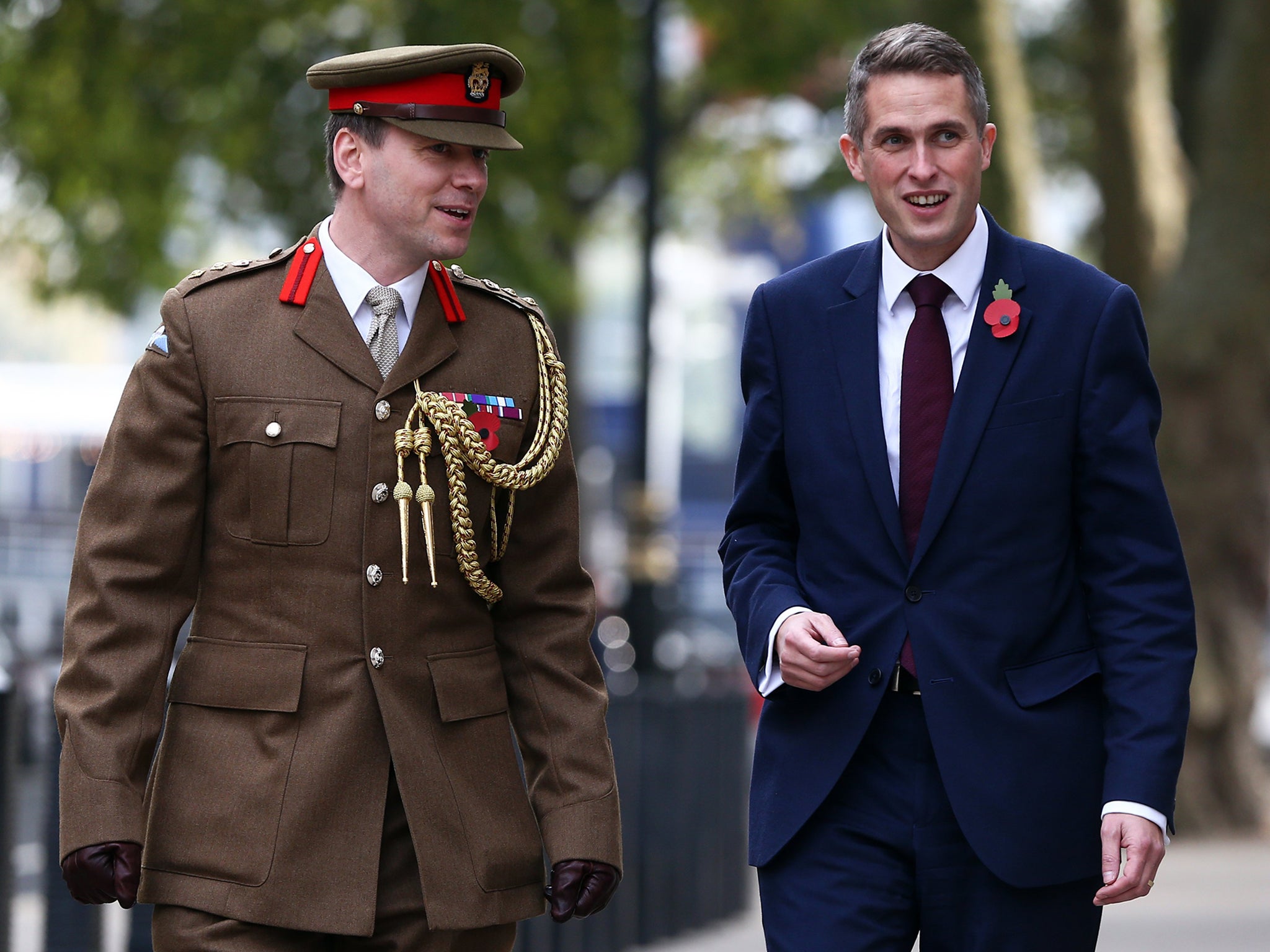Defence Secretary Gavin Williamson warned armed forces cuts will provoke Tory rebellion
The threat comes as former Conservative defence chiefs have demanded that the Chancellor Philip Hammond boost spending for the armed forces in order to combat the threat posed by North Korea, Russia and the uncertainty in Iran

Your support helps us to tell the story
From reproductive rights to climate change to Big Tech, The Independent is on the ground when the story is developing. Whether it's investigating the financials of Elon Musk's pro-Trump PAC or producing our latest documentary, 'The A Word', which shines a light on the American women fighting for reproductive rights, we know how important it is to parse out the facts from the messaging.
At such a critical moment in US history, we need reporters on the ground. Your donation allows us to keep sending journalists to speak to both sides of the story.
The Independent is trusted by Americans across the entire political spectrum. And unlike many other quality news outlets, we choose not to lock Americans out of our reporting and analysis with paywalls. We believe quality journalism should be available to everyone, paid for by those who can afford it.
Your support makes all the difference.Defence Secretary Gavin Williamson has been warned that attempts to cut the armed forces will provoke a backbench rebellion significant enough to the defeat the Government in a Commons vote.
The threat comes as former Conservative defence chiefs have demanded that the Chancellor Philip Hammond boost spending for the armed forces in the Budget in order to combat the threat posed by North Korea, Russia and the uncertainty in Iran.
According to The Times, 21 Tory MPs have written to the newly-appointed Defence Secretary, who took over after the resignation of Michael Fallon three weeks’ ago.
In a letter to Mr Williamson, Conservative MP Johnny Mercer, who sits on the Commons Defence Select Committee, said: “At some point you have to make a stand for what you believe in.”
Referring to a suggested cut to the Royal Marines by 1,000, Mr Mercer added: “I am simply not prepared to see the degradation of the UK’s armed forces any further in this national security review.”
But the threat is not considered imminent as The Ministry of Defence is not expected to conclude the major review until 2018.
Meanwhile, Mr Hammond faces considerable political pressure to increase funding for Britain’s armed forces. General Sir Richard Barrons, the former commander of Joint Forces Command, told the Commons Defence Committee there were currently “existential risks” to the UK homeland which the armed forces were unable to deal with and called for £2 billion a year for the military or it could simply “fall over”.
Mark Francois, who served as a defence minister from 2012 to 2015, told the Daily Mirror: “General Barrons made a powerful case for why we should spend more money on defence.
“I have always believed we should never take living in a free country for granted and I believe the international situation, including Russia and North Korea, now justifies an increase in our defence expenditure.”
Sir Malcolm Rifkind, who was Defence Secretary between 1992 and 1995, warned: “The United States is getting worried as to whether we would be able to meet all our existing Nato commitments - I don't mean in cash terms but in military capability.
“My message would be that if you want Britain to punch above its weight - which we all believe it should - then you have to provide the resources to deliver that.”
Former international security strategy minister Sir Gerald Howarth said: “The world is in a very critical condition.
“It's not just North Korea, the Chinese are basically colonising the whole of the South China Sea - with potential risks to our trading operations - we have got great uncertainty in Iran where they are completely immune to any concern about human rights and seeking to destabilise much of the Middle East, (and) we have Russia doing its level best to disrupt us through cyber and sabre-rattling on the borders of the Baltic states.
“This is no time for Britain to be engaging in further defence cutbacks, it's a time to be building up our defences.”
Sir Gerald, who served under Mr Hammond when he was Defence Secretary: “You and I both were defence ministers together.
“As part of the deficit reduction programme, we put the department on a sound footing, but always with the view that as the economy grew we would be putting more money into defence - and that is not happening.”
Join our commenting forum
Join thought-provoking conversations, follow other Independent readers and see their replies
Comments